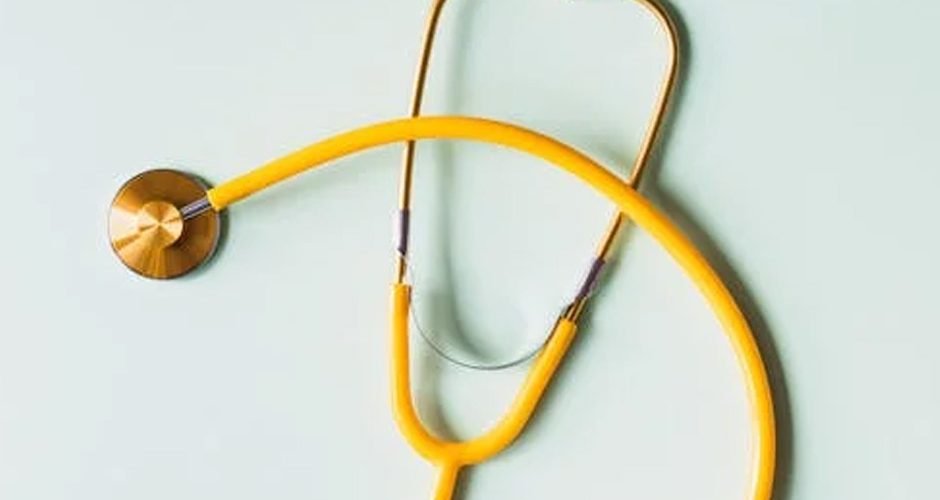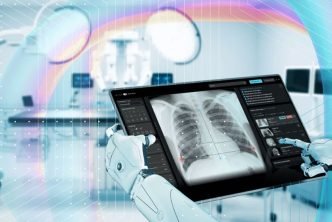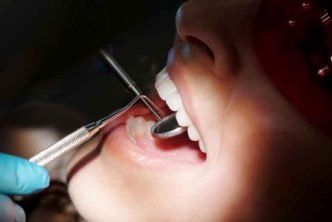The healthcare industry has undergone a remarkable transformation in recent years, with the integration of innovative technologies playing a pivotal role. One such revolutionary technology that is reshaping the landscape of healthcare is the Internet of Things (IoT). IoT can revolutionize the way healthcare services are delivered, ultimately enhancing patient outcomes and improving the efficiency of healthcare facilities.
Explore the key benefits of incorporating IoT into your clinic, empowering you to stay ahead of the curve and provide exceptional care to your patients.
Table of Contents
Improved Patient Care and Monitoring With IoT
IoT-enabled devices have the ability to transform the way patients are monitored and cared for. By integrating these smart devices into your clinic, you can gain real-time insights into your patients’ health status, enabling you to make more informed decisions and provide personalized care.
Remote Patient Monitoring
IoT-powered wearable devices and sensors can continuously track a patient’s vital signs, such as heart rate, blood pressure, and oxygen levels, even when they are outside the clinic. This data can be seamlessly transmitted to your clinic, allowing you to monitor your patients’ health from a distance and intervene promptly if any abnormalities are detected.
Medication Management
IoT-enabled medication dispensers and smart pill bottles can help patients adhere to their prescribed treatment regimen by providing reminders, tracking medication intake, and alerting both the patient and the healthcare provider if doses are missed.
Fall Detection and Prevention
IoT-enabled sensors can be strategically placed in patients’ homes to detect falls or sudden changes in movement patterns. This information can be used to trigger immediate alerts, enabling your clinic to respond swiftly and potentially prevent serious injuries.
Streamlined Operations and Efficiency in Healthcare Facilities
IoT technologies can also play a crucial role in optimizing the operational efficiency of your healthcare facility, allowing you to allocate resources more effectively and streamline various processes.
Asset Tracking
IoT-enabled asset tracking solutions can help you monitor the location and status of critical medical equipment, such as wheelchairs, infusion pumps, and diagnostic devices. This information can assist in reducing equipment loss, improving asset utilization, and ensuring the availability of necessary tools when and where they are needed.
Inventory Management
IoT-powered sensors can track the levels of medical supplies, pharmaceuticals, and other consumables, automatically triggering reorder alerts when stocks are running low. This can help you maintain optimal inventory levels, reduce waste, and ensure that your clinic is always well-stocked and ready to serve your patients.
Energy and Facility Management
IoT-connected systems can monitor and optimize the energy consumption of your healthcare facility, adjusting lighting, HVAC, and other building systems based on occupancy and usage patterns. This can lead to significant energy savings and a reduced environmental impact, while also enhancing the overall comfort and safety of your clinic.
Enhanced Connectivity and Communication in the Healthcare Industry
IoT technologies can also foster improved connectivity and communication within the healthcare industry, facilitating seamless collaboration and information sharing among healthcare providers, patients, and other stakeholders.
Telemedicine and Virtual Consultations
IoT-powered devices, such as video conferencing systems and remote examination tools, can enable healthcare providers to conduct virtual consultations with patients, regardless of their physical location. This can improve access to care, particularly for patients in remote or underserved areas, and reduce the burden on healthcare facilities.
Interdisciplinary Collaboration
IoT-enabled platforms can facilitate the sharing of patient data and medical insights among healthcare professionals, such as physicians, nurses, and specialists. This enhanced connectivity can lead to more informed decision-making, better coordination of care, and improved patient outcomes.
Patient-Provider Engagement
IoT-connected devices can empower patients to actively participate in their own healthcare journey. Patients can receive timely updates, communicate with their healthcare providers, and access personalized educational resources, fostering a stronger sense of engagement and shared responsibility for their well-being.
Better Data Collection and Analysis for Informed Decision Making
IoT technologies are revolutionizing the way healthcare data is collected, analyzed, and utilized to drive informed decision-making.
Real-Time Data Capture
IoT-connected devices can continuously gather and transmit large volumes of data, providing a comprehensive and real-time view of patient health, operational efficiency, and overall clinic performance.
Advanced Analytics
By integrating IoT data with powerful analytics and artificial intelligence (AI) tools, healthcare providers can uncover valuable insights, identify patterns, and make more informed decisions. This can lead to improved clinical outcomes, enhanced operational efficiency, and better resource allocation.
Predictive Capabilities
IoT-driven data analytics can also enable predictive modeling, allowing your clinic to anticipate and proactively address potential issues, such as equipment failures, medication shortages, or patient health deterioration. This can help you stay ahead of the curve and provide a higher level of care to your patients.
Implementing IoT in Your Clinic
Integrating IoT technologies into your healthcare facility may seem daunting, but with the right approach and support, you can seamlessly incorporate these innovative solutions to transform your clinic’s operations and patient care. One effective strategy is to use a reputable IoT application development services provider. These experts can help you.
Assess Your Needs
Understand your clinic’s specific challenges, priorities, and goals, and then develop a tailored IoT implementation plan to address your unique requirements.
Select Suitable IoT Devices
Identify the most appropriate IoT-enabled devices and sensors that align with your clinic’s needs, ensuring seamless integration and maximum benefits.
Implement and Integrate
Oversee the deployment of IoT technologies, ensuring a smooth integration with your existing healthcare systems and infrastructure.
Provide Ongoing Support
Offer ongoing maintenance, monitoring, and support to ensure the continuous optimization and performance of your IoT-powered solutions.
Conclusion
The integration of IoT technology in healthcare is a game-changer, offering a wealth of benefits that can revolutionize the way you deliver care to your patients. Take the first step towards a more connected, efficient, and patient-centric future by exploring the IoT solutions that can best serve your clinic and your community.





